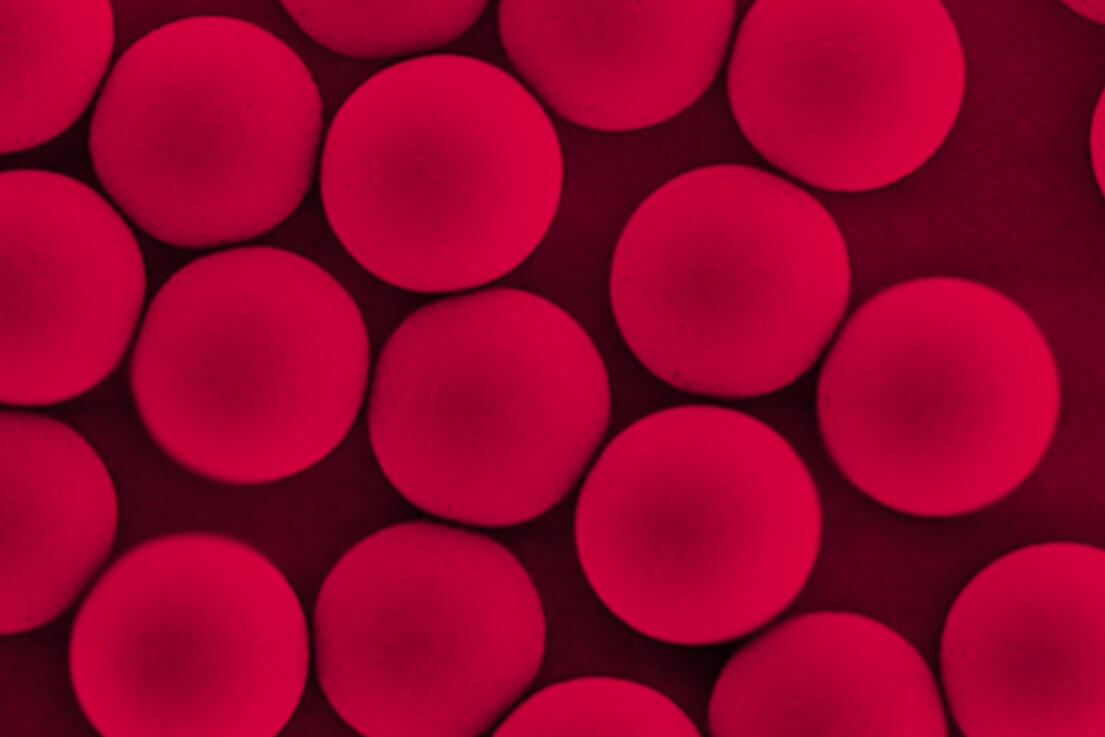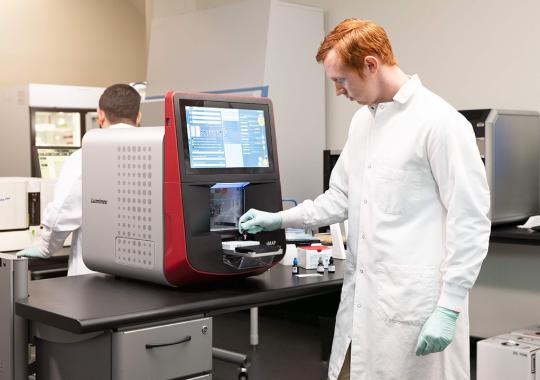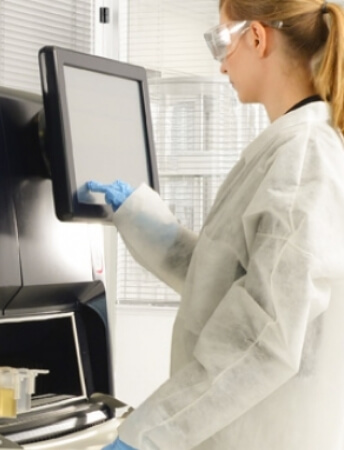Immunogenicity
Save time and money without
sacrificing immunogenicity
testing results

In drug discovery and development pipelines, measuring immunogenicity—or the body’s ability to produce an immune response—is a critical step. During vaccine development, a strong immune response indicates that protection against an infectious disease has been achieved. In biotherapeutic development, however, signs of immunogenicity suggest the production of anti-drug antibodies, which may lead to adverse events or limit the drug’s effectiveness.
Traditional immunogenicity characterization methods involve ELISAs and electrochemiluminescence assays. Often, these assays are deployed in a tiered strategy, which tends to be time-consuming and expensive. The use of multiple assays also increases the likelihood of unreliable results due to repeated freeze/thaw cycles and frequent sample handling.
Multiplex immunoassays can overcome these obstacles, saving time and costs while preserving sample volume and delivering high-confidence results.
Rapid reaction times
Compared to traditional immunoassays or nucleic acid arrays, xMAP® bead-based assays are run entirely in a liquid medium—not having to interact with solid-phase substrates makes bead-based multiplexing ideal for rapid reaction times.
By simultaneously detecting up to 500 analytes per well, xMAP® Technology expands your research by delivering exceptional throughput in addition to high sensitivity and specificity.
You not only save on reagents and precious samples but using an automated workflow significantly reduces hands-on time, making it a cinch to study multiple isotypes of antibodies in a single run.
Key benefits of using xMAP® Technology for studying immunogenicity
Higher throughput:
xMAP® assays can measure as many as 500 different analytes at once—including multiple isotypes of antibodies and anti-drug antibodies—in a single well.
Small sample volumes:
Measure more analytes per well simultaneously, conserving precious samples.
High-confidence answers:
Excellent sensitivity, specificity, and reproducibility, deliver reliable results with intra-assay precision.
Economical testing:
Save time and money by running one assay instead of several low-throughput assays.
Customizable workflows:
Whether you prefer ready-to-use kits or develop your own custom assays, xMAP® Technology is easy to use thanks to the system’s flexible, open architecture. Our Kit Finder has a wide variety of immunogenicity testing kits for vaccine and drug development.


xMAP® in action
Explore xMAP® Technology and discover some of the many applications used by multiplexing research experts across the globe.
LuminexPLORE Lab
Looking for custom assay design and development services with unique targets in mind? Discover the LuminexPLORE Lab and partner with the xMAP® multiplexing industry experts.
xMAP® Kit Finder
xMAP® Technology is an open multiplexing platform used in hundreds of commercial immunoassay kits. Industry leading manufacturers offer xMAP® Technology assay kits. To find them, use our xMAP® Kit Finder.



